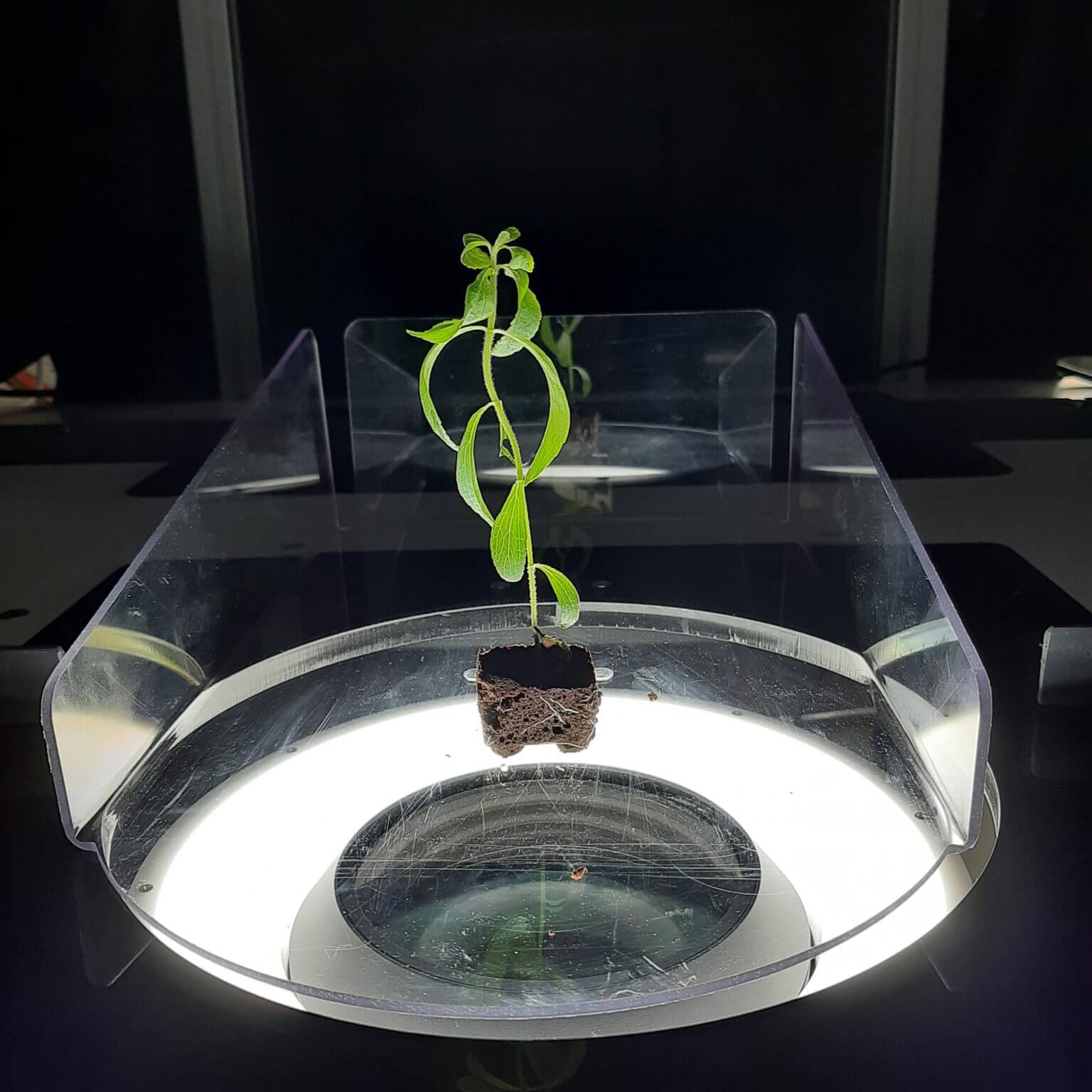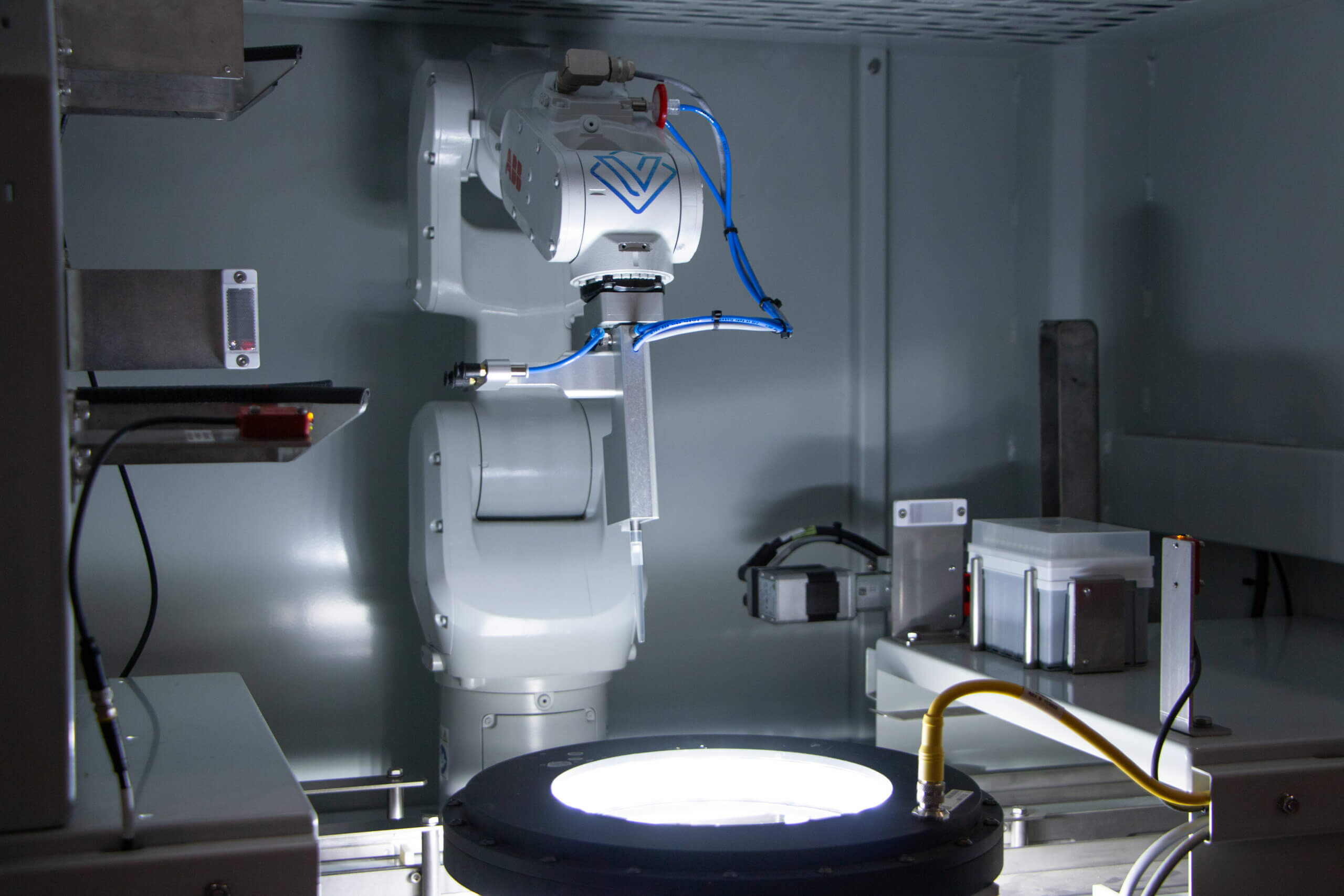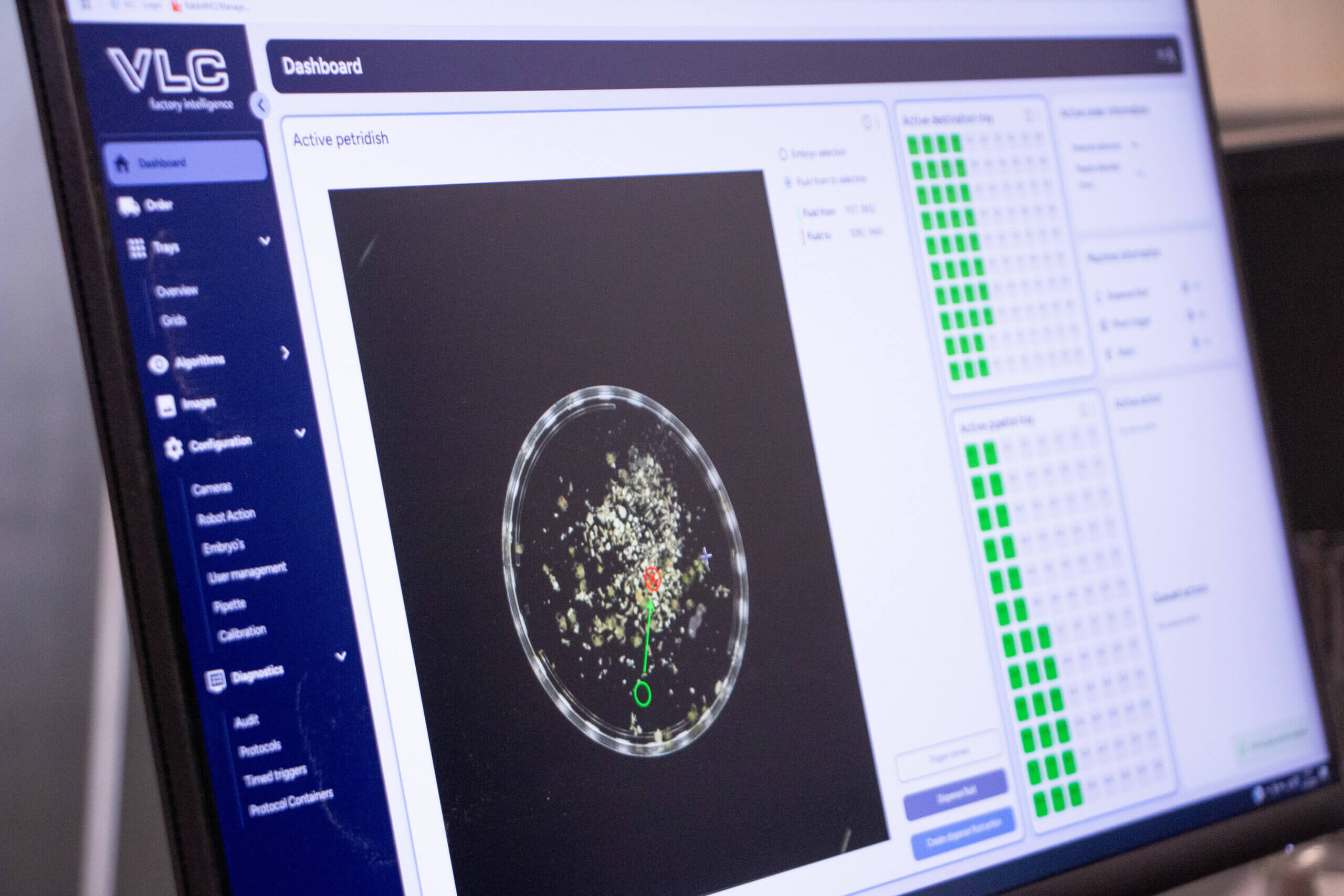This page is being translated by Google Translate
Viscon’s somatic embryogenesis platform is a fully integrated, AI-powered automation line designed specifically for the propagation of genetically uniform plants via somatic embryo development.
This end-to-end solution unites four specialized technologies – embryo picking, media dispensing, custom tray handling, and automated marker-guided transplanting for genotype and phenotype selection – into a seamless workflow.
By minimizing manual handling and maximizing precision at every stage, it ensures optimal embryo selection, consistent cultivation conditions, and phenotypically guided transplanting. The result is a high-throughput, biologically intelligent system that accelerates breeding timelines while safeguarding plant quality and genetic integrity.
At the heart of the system is the VitroFlow Select, a robotic unit powered by artificial intelligence. It uses high-resolution imaging and machine learning algorithms to identify viable somatic embryos based on size, shape, and developmental stage. This ensures only the most promising embryos are selected for further development, improving consistency and reducing manual selection errors.
Learn moreOnce embryos are selected, they are placed into our custom Embryo Trays filled by Viscon’s Media Flow. This machine automates the precise dispensing of growth media—liquid, semi-solid, or gel—into each cavity or dish. It ensures sterility, uniformity, and optimal conditions for embryo development, while significantly reducing labor and contamination risks.
Learn moreViscon has developed custom trays specifically designed for somatic embryo handling. These trays support optimal spacing, airflow, and moisture retention, and are compatible with both the media dispenser and robotic handling systems. Their design facilitates easy transfer between lab environments and downstream automation steps.
As embryos develop into early-stage plantlets, Viscon’s marker-guided transplanting system takes over. This system is capable of transplanting delicate first-growth plants into new substrates or containers. It can be integrated with phenotyping data—such as growth rate or morphology—allowing only the best-performing individuals to be transplanted. This step ensures that only elite selections move forward in the breeding pipeline, supporting both quality and scalability.
Learn moreAt Viscon, our approach is rooted in a deep understanding of plant tissue culture and a commitment to practical innovation. We don’t just build machines – we design intelligent, integrated systems tailored specifically for the somatic embryogenesis process.
We collaborate closely with plant scientists and lab technicians to ensure our solutions align with biological processes and daily workflows. Every feature is designed to enhance usability, safety, and scientific accuracy – supporting the unique requirements of somatic embryo or other to tissue culture development.


Our platform is built around four core components: VitroFlow Select, Media Flow, Vitray VT and PhytoFlow Transplanter – each optimized for a specific stage of somatic embryogenesis. This modular design allows labs to scale and adapt as their protocols evolve.
We integrate AI, imaging, and robotics to automate the selection, transfer, and phenotyping of somatic embryos. This not only increases throughput but also ensures consistency, traceability, and protection of valuable genetics throughout the process.


Whether you’re operating a research lab or a commercial propagation facility, our systems are designed to grow with you – supporting high-throughput somatic embryo propagation while reducing manual labor and exposure to contamination risks.

At Viscon, our approach is rooted in a deep understanding of plant tissue culture and a commitment to practical innovation. We don’t just build machines – we design intelligent, integrated systems tailored specifically for the somatic embryogenesis process.
We collaborate closely with plant scientists and lab technicians to ensure our solutions align with biological processes and daily workflows. Every feature is designed to enhance usability, safety, and scientific accuracy – supporting the unique requirements of somatic embryo or other to tissue culture development.
Our platform is built around four core components – VitroFlow Select, Media Flow, Vitray VT and PhytoFlow Transplanter – each optimized for a specific stage of somatic embryogenesis. This modular design allows labs to scale and adapt as their protocols evolve.
We integrate AI, imaging, and robotics to automate the selection, transfer, and phenotyping of somatic embryos. This not only increases throughput but also ensures consistency, traceability, and protection of valuable genetics throughout the process.
Whether you’re operating a research lab or a commercial propagation facility, our systems are designed to grow with you—supporting high-throughput somatic embryo propagation while reducing manual labor and exposure to contamination risks.
At Viscon, we offer a fully integrated automation platform designed specifically for somatic embryogenesis and in vitro plant propagation. Our system combines intelligent robotics, AI, and precision engineering to streamline every step of the process – from embryo selection to transplanting and growth.

Custom-designed labware that supports embryo development in isolated wells. Compatible with automated transplanting and phenotyping, it’s ideal for high-throughput workflows.